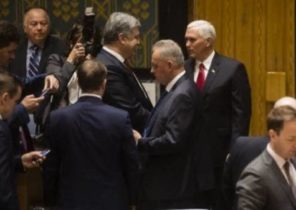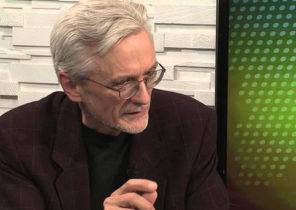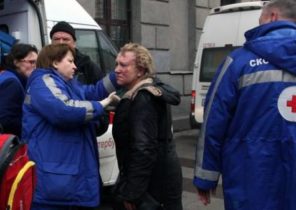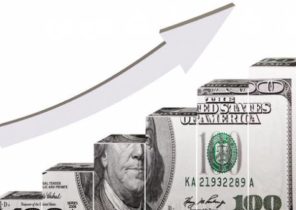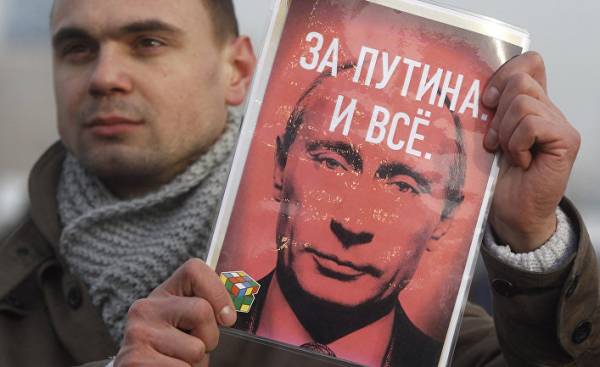
The idea that in the Baltic countries is flourishing so-called Russophobia, the essence of which “than Russia is worse — the better” is a painful Kremlin myth. There is no doubt that the interest of Lithuania, Latvia and Estonia is in the neighborhood of a democratic, free, respecting the principles of international law by Russia. In other words, government, which at the moment, but that may be the result of democratic transformation of the modern Russian Federation.
To think more and more about this cause and the upcoming Russian presidential election. To carry out their plans in March 2018. The fact that even in non-free countries (if, of course, it’s not North Korea) there are certain political cycles. Elections are always seen as the possibility of changing the political agenda of the other. This can happen even if there are doubts about the honesty and transparency of the electoral process. The possibility of such a change on the agenda during the elections of 2018 demonstrates a number of circumstances.
Despite all attempts to be cheerful, it’s quite obvious that Russia pays a heavy price for its aggression against Ukraine. Double trap of the fallen oil prices and Western sanctions (reinforced by the Kremlin’s retaliatory sanctions, more like shot themselves in the foot) plunged Russia into a very difficult economic situation. At the same time, given the contested geopolitical map, Moscow has to spend heavily on the army, security services and fighters on the propaganda front. In the current environment it is possible only at the expense of cuts in other areas of Finance.
The elections in 2018, today defined as a referendum of trust to Vladimir Putin and his system. This is an attempt to prove and convince others that “Putin is the best” no matter what. The roots of this position goes to another campaign slogan: “Who if not Putin?”. However, always ironic Internet for a couple of years ago gave the answer in a parody of the slogan: “the cat, if not Putin”. In a limited and stripped the political field of Russia, such a proposal does not look so crazy. The cat is at least not desired to be earth’s neighbor. However, bearing in mind the proverb, we can assume that rather conservative society in Russia, preferably still Putin than the conventional “cat’s in the bag”.
Trying to figure it out, I’m still in January, went on a journalistic trip, trying to communicate with representatives of the new Russian emigration in the Baltic States. The purpose of the trip was trying to find and outline a political alternative to Russia, in which there would be neither Putin nor even a cat (the animal is cute, but fundamentally apolitical). Emigrant environment for such conversation was not chosen by chance. In the end we are talking about people who most of his life lived in Russia and left her recently. They know and are guided in the internal processes of this country, the hope for change, as a sharp rejection of the current Russian political course pushed them beyond their native country. Along with a significant number of immigrants from Russia was extruded and alternative political thought.
At the same time, it is not true that Russian policy as such is dead (understanding the policy process in which various competing views and strategies of development). She’s very much alive, though — outside of Russia, at different alternative venues like “the forum of free Russia” and settled in Vilnius. So, I thought it was in emigre circles should be the most clear view on what might represent a real political alternative to Russia.
The assumption is generally confirmed, although not fully. To communicate I tried to find people from different backgrounds and different political views. For example, among my interviewees were the emigrants Vsevolod chernozub and Constantine Danilov, journalists Leonid Ragozin and Evgeny Titov, and environmental activist Yevgenia Chirikova and well-known music critic (and today an active critic of the Russian government) Artemy Troitsky. Detailed interviews with them were published on other platforms in the Internet, and an inquisitive reader, I think, can easily find them. Here I would like to bring a short summary of the six conversations — six possible alternatives for Russia.
It is interesting to note a certain unanimity of all parties on certain issues. The essence of this consensus — the authoritarian system in Russia will collapse sooner or later, however that may come to replace it, it is difficult to say anything definite. The future of Russia is uncertain because of the current political regime did everything to ensure that the alternative has not appeared. It’s funny that even democratically-minded people do not believe in the inevitability of the victory of democracy in Russia. However, their fears on this score are quite understandable, especially given the relatively recent experience of the country.
“Timelessness and futility” — a former journalist of “Novaya Gazeta” Evgeny Titov has determined the General condition of Russia, including the prospects for the future. However, most of my interlocutors still was characterized by cautious optimism. For example, Yevgenia Chirikova expressed confidence that Putin’s regime will either eat himself or still undergo modification, and various civil currents will not allow Russia to once again wallow in the abyss of authoritarianism. Thus, comparing all of the above conversation, narrative of certain internal system changes sounded more often than the collapse of the regime and the coming to power of new people. Based on this we can conclude that “Putin vertical” has a clear image of solidity and stability (which, however, is not necessarily true).
It is also significant that stripped vnutrepoliticheskoy field in General is extremely difficult to discern any new features. Therefore certain expectations are associated with persons who although are not in power, but one way or another inscribed in the formal system, are at least nominally as the antipodes. The Central ‘alternative’ identity in the paradigm of such hopes — Alexei Navalny, have relied on exposing corruption in the ranks of senior Russian officials. However, here it probably is a very bright alternative to the dim. “In addition to Alexei Navalny, I don’t see a single person, which would make sense to do some betting, and one is known to be a warrior,” — said in a conversation Artemy Troitsky.
Among the representatives of the new wave of Russian emigration does not exclude the idea of a change of government and “people’s request”, i.e. as a result of the protests. It is noted that similar protests will primarily social plan. They can arise from the realization that the government does not cope with its functions. Thus, few believe in political protest “for democracy”. At the same time, almost all interlocutors were unanimous in the opinion that the percentage of active civil society in Russia at the moment is small, but according to his activity and the quality it is much inferior to the Ukrainian society. For example, according to Daniel Konstantinov, today to conventional “civil society” in Russia, you can reckon only 5-10% of the population. However, under certain conditions, this may not be enough, at least for the beginning.
Summarizing, we can say that the lack of a clear vision of the alternatives for Russia, even in the eyes of the people who tend these alternatives to look for is bad news primarily for Russia itself. However, for its neighbors, too. The inability to predict changes indicate a high likelihood that the regime change in the country is likely to occur abruptly and painfully (in contrast to the cautious evolutionary path). In this case, for qualitative changes, Russia will have to make up for lost time and re-take a path similar to that which passed the countries of Eastern Europe after the collapse of the Soviet Union. In the case of the worst scenario one authoritarian regime replaced by another, and horseradish radish is not known to be sweeter.
Still I would not like to finish the text on a pessimistic note. In the end there are always alternatives — and even when they are not obvious. This means that citizens of Russia have the potential to choose not only between the “cat and Putin.” Moreover, the idea that among the 140 million inhabitants of the country will not find anyone “better than Putin” is seditious and Russophobic in nature. Therefore, the chance that sooner or later Russia will become a free, democratic country, in which, in the apt definition Eugene Chirikov, “power shit” is real. But as they say, wait and see.
